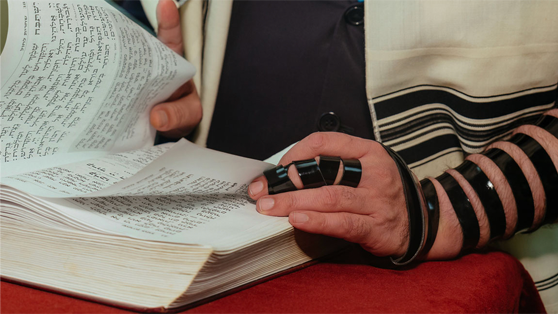
The Power of Prayer: Unveiling the Mysteries of Tefilla
A great scholar once asked Rav Yaakov Hillel, “How do you accomplish so much?” He simply replied, “I don’t do anything. I am just a vessel.” This concept is a cornerstone in understanding the nature of Tefilla, or prayer, and the story of Balak and Bilam in the Torah.
Balak was no ordinary figure. He realized the potency of the Tefilla of Klal Yisrael, the Jewish people, and endeavored to counter this force with a similar one. To achieve this, he sought the assistance of Bilam, who also recognized the profound power of Tefilla. The question that arises is: what truly is Tefilla, and why did it fail to work for Bilam?
The first man, according to Targum’s translation of Bereishis, was created as a ‘ruach melala,’ a speaking being, setting us apart from the rest of the animal kingdom. This, however, does not merely refer to the capacity to communicate intelligently as all animals can signal to each other through various sounds and movements.
In a more profound sense, our ability to speak grants us the power to shape realities. The Hebrew word for speech, ‘dibur,’ shares a root with ‘davar,’ implying creation or a thing. This concept suggests that our spoken words and thoughts can translate into tangible reality.
As per the Zohar in the Parsha of Balak, “The moment the words leave your mouth, what you’ve prayed for is done, answered.” This emphasizes the concept of Tefilla as the act of giving form to desire, of directing our ‘ratzon’ or will. The intense longing or ‘ratzon’ for something draws it down into reality.
But the art of Tefilla requires not just expression of desire but also the capacity to receive. These can be seen as two modes of prayer. The first, the ‘Asking Mode,’ involves expressing our desires, our ‘ratzon,’ which awakens the divine flow. The second, the ‘Receiving Mode,’ is about becoming a vessel, a ‘kli,’ to receive what we prayed for. This mode requires us to believe and expect our prayers to be answered, to feel gratitude and completeness even before their manifestation.
Unfortunately, most people often stay in the ‘Asking Mode,’ unable to believe in the reality of their prayers without physical evidence. According to the Zohar, this very lack of belief causes a breakdown in our spiritual communication.
In the Torah, Balak’s attempt to use Tefilla against Klal Yisrael illuminates the power inherent in our prayers. Do we recognize the strength in our own Tefilla, the potency of our own words and desires? The teachings of Rav Yaakov Hillel remind us that if we have great dreams and know that Hashem will fulfill His part, we can accomplish things beyond our imagination.
May we be blessed with the awareness of our strength to pray for healing in the world, for peace and love amongst Klal Yisrael, and the arrival of the ultimate redemption, the ‘geula shlayma,’ soon and speedily. Amen.

